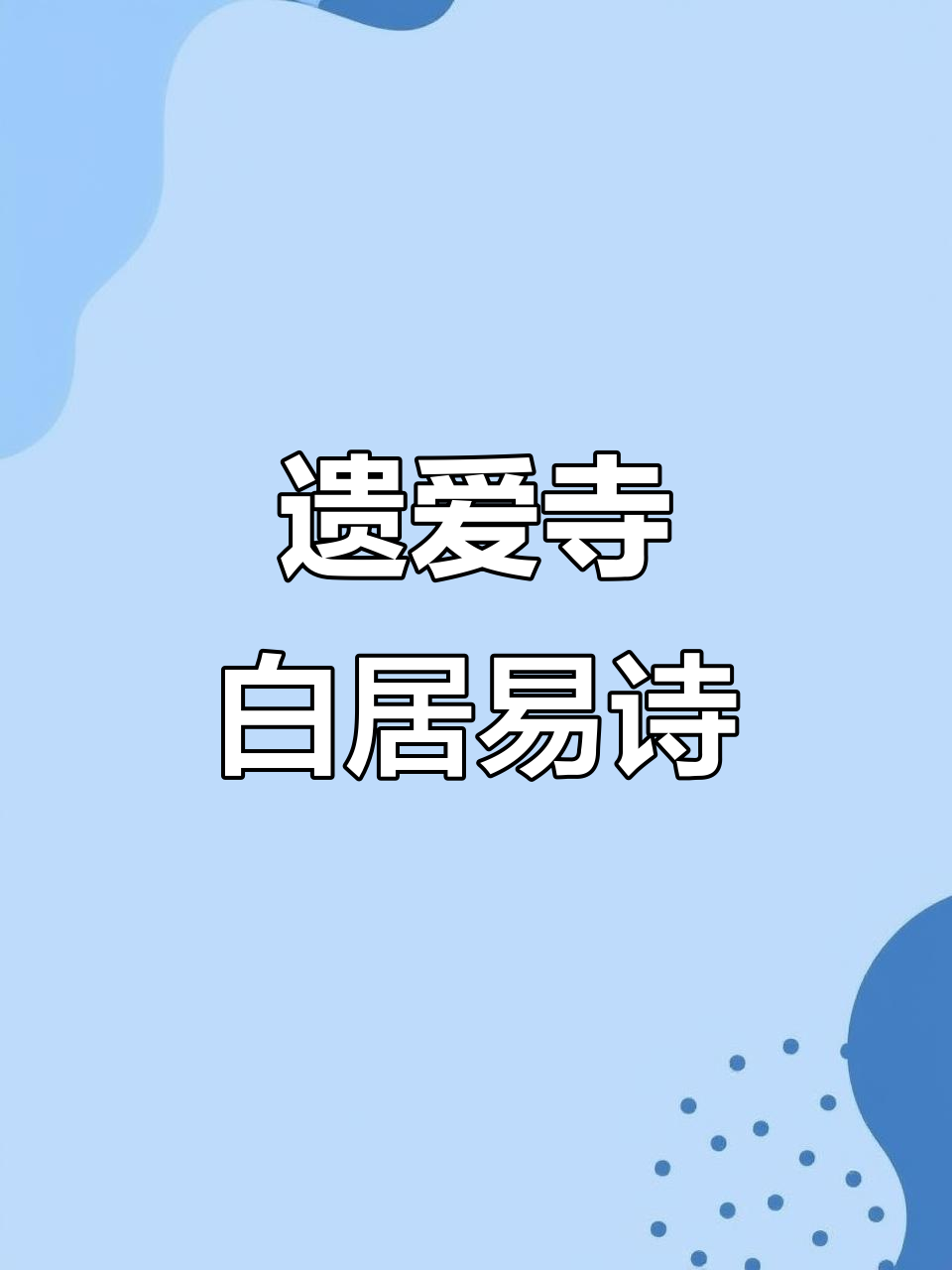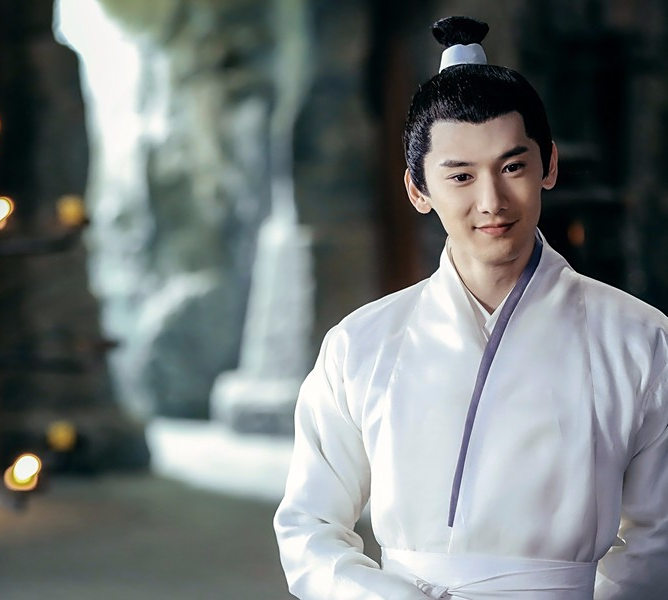Lin Bu [b ū] (967-1028 AD), also known as Junfu, was a famous hermit from Qiantang, Hangzhou during the Northern Song Dynasty. He was eager to learn and strive for progress in his childhood, and was familiar with the classics and history of hundreds of schools. But it is not a scholarly debate and sentence analysis, confined to books. During his teenage years, Lin Bu wandered the world and indulged in wandering between the Jianghuai region for many years, as carefree as a wild crane.

After reaching middle age, Lin Bu grew tired of wandering and returned to his hometown of Hangzhou. He settled on the solitary mountain of West Lake, where he lived in extreme seclusion for twenty years.
Although Lin Bu lived a reclusive life, he did not feel lonely at all. He was very fond of plum blossoms, so he planted hundreds of plum blossoms in Gushan. One song, “Little Plum in the Mountain Garden,” became Lin Bu’s representative work and also became the “eternal masterpiece of plum blossom singing”:
The Little Plum in the Mountain Garden “by Lin Buqi

Amidst the crowd, the only Xuan Yan swayed, capturing the charm of the small garden.
Scattered shadows slanting horizontally, the water is clear and shallow, and the faint fragrance floats on the moon at dusk.
Frosty birds steal their eyes first, while pink butterflies know to merge and break their souls.
Fortunately, there is a faint melody that can be enjoyed together, without the need for sandalwood or gold jars.
This poem not only depicts the shape of the plum blossom, but also the spirit of the plum blossom, fully expressing the noble character of the plum blossom that fears no cold and is proud of snow and frost. Without exceptional talent and ethics, how could one write such a beautiful chapter? How can we interpret the proud plum blossom so deeply?
Lin Bu not only loves plum blossoms, but also has no wife or children. After living in seclusion in a lonely mountain, he raised two white cranes. Over time, the white cranes surprisingly understood human nature. Even if Lin Bu opened the cage and let them hover in the sky, they would voluntarily return to the cage and be loyal as companions.
When a guest comes to visit, if Lin Bu is not at home, the gatekeeper is not in a hurry. Instead, he prepares tea to welcome the guest while releasing the white crane. As the crane crows in the sky, Lin Bu sees and hears the white crane dancing in the sky, and knows that there is a guest visiting his home. He immediately returns home, and this has been proven effective time and time again.
Lin Bu has been living in seclusion on a solitary mountain for twenty years, and can be described as’ picking from the mountain, beautiful and charming; fishing in the water, fresh and edible ‘, living a peaceful and contented life. Due to his love for plum blossoms and affection for cranes, he is known as the ‘plum wife and crane son’.
Lin Bu not only enjoys writing poetry, but also excels in composing lyrics. However, he is spontaneous and often writes and discards them at will. Someone asked him, ‘Why not record it for future generations?’ But he replied, ‘We are lost in the forests and valleys, and we do not want to use poetry as a name for the time being, but for future generations!’ (History of Song – Biography of Lin Bu). Do you still care about your posthumous name if you didn’t care before your death?
Lin Bu’s calligraphy and painting were both outstanding, which impressed people of his time. Lu You was also a master of calligraphy at that time. He once said, “Jun Fu’s calligraphy is superior to others. Every time you see it, you can cure your illness without medicine and satisfy your hunger without food” (Lu You’s “Postscript to the Release of the Weng”). This shows how much Lu You admires Lin Bu’s calligraphy.
The Song Dynasty was a dynasty with developed literati, and the emperors also attached great importance to famous literati. In the fourth year of Jingde (1007), Emperor Zhenzong of Song heard about Lin Bu’s fame and specially arranged for the governor of Hangzhou, Wang Ji, to go to Gushan to visit Lin Bu, intending to conscript him out of the mountains. In the fifth year of Dazhong Xiangfu (1012 AD), Emperor Zhenzong of Song sent people to deliver grain and cloth, and requested the local governor to provide regular assistance. In the third year of the Tian Sheng era (1025 AD), Emperor Renzong of Song also arranged for people to send money and goods as a gesture of condolences.
Faced with multiple invitations from the court to serve, Lin Bujun politely declined, saying, “My aspirations are not suitable for my family, nor for fame and wealth. I only feel that the green mountains and clear waters are suitable for my feelings.” For Lin Bujun, wealth and honor are like floating clouds, and glory is like dust.
Although Lin Bu had a straightforward temperament, he was not arrogant. Although he was completely hidden, he was not extreme. He had a gentle temperament, so he sang and interacted with some high monks and talented literati at that time, forming deep friendships.
Lin Bu often rowed a small boat, entered and exited ancient temples, and discussed the profound knowledge of life with eminent monks in the morning bell and evening drum. Several governors of Hangzhou have also taken boats to Gushan several times to visit Lin Bu’s thatched hut. And many talented literati such as Fan Zhongyan, Ouyang Xiu, and Mei Yaochen, who were still young talents at that time, traveled thousands of miles to Gushan to visit their most respected Lin Bu Chushi, exchange experiences, sing poetry and wine, and leave behind many beautiful stories.
In his poem “Sending Gifts to Lin Bu Chushi,” Fan Zhongyan said, “Tang Yu was a reclusive man, and how often did he tie up silk? Because of the kindness of the ruler, his writing reaches the old spring.” This expresses his admiration for Lin Bu.
In the sixth year of the Tian Sheng era (1028 AD), Lin Bu passed away peacefully in Gushan. Upon learning of this, Emperor Renzong of Song mourned deeply and arranged for someone to come and offer condolences, and posthumously bestowed the title of “Mr. Hejing”. The fact that an emperor can bestow a posthumous title on a recluse dressed in cloth shows the enormous influence of Lin Bu in the court and the people.
Even after Lin Bu’s death, he still had an influence among the literati of the Northern Song Dynasty. Those who respected him tirelessly rushed to Gushan, treating it as a spiritual sanctuary and devoutly worshipping it.
Su Dongpo, who was born nine years later, also deeply regretted not being able to seek advice from Lin Bu in person. Later, when Su Dongpo was serving in Hangzhou, he often went to the tomb of Lin Bu in Gushan to worship. What is even more rare is that Su Dongpo had a profound understanding and sincere admiration for Lin Bu’s spiritual realm.
According to the Song Dynasty’s “Wang Zhifang Poetry Talks,” Su Dongpo, Sun Juyuan, Wang Juqing, and a group of literary friends gathered in Yangzhou to discuss Lin Bu’s “Small Plum Blossoms in the Mountain Garden.” Wang Juqing jokingly said, “The shadows are scattered horizontally and the water is shallow, and the dark fragrance floats on the moon at dusk.” Although these two sentences are famous, they can also be used to sing about apricots or peaches and plums. After hearing this, Su Dongpo said disapprovingly, “If it’s okay, it’s okay, but I’m afraid Taoxing won’t dare to take it seriously
Su Dongpo highly praised Lin Bu’s poetry, writings, and character, and wrote a postscript to his poem: “Poetry is like the cold in the eastern wilderness, and books are like the lack of meat left in Taiwan.” He believed that Lin Bu’s poetry was superior to Meng Jiao’s in the Tang Dynasty, and his handwriting was superior to Li Jianzhong’s in the Song Dynasty. According to the understanding of Lin Bu’s poetry, Su Dongpo can be regarded as Lin Bu’s lifelong friend.



